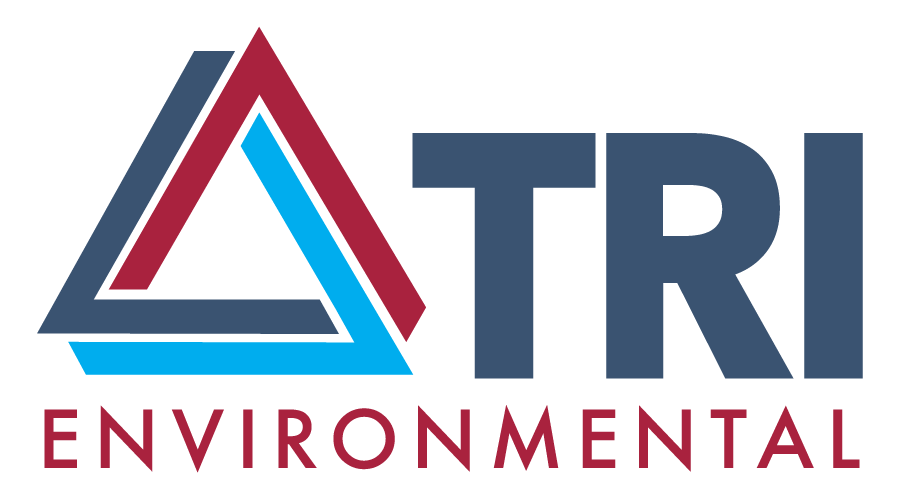The TRI Environmental Group operates world-class, independent, third-party, geotechnical laboratories in Austin, Texas and Coraopolis, Pennsylvania. TRI is unassociated with any manufacturing, engineering, consulting or construction company, thus establishing the independence of all staff and test results generated. TRI is non-competitive with our clients and assists them in achieving success. Our laboratories boasts one of the broadest ranges of soil, aggregate and rock strength testing capabilities in the world. Technical capability, custom service, safety, comprehensive reporting are just a few of the things our clients can count on to ensure project success.
We are committed to customer service, independence, rapid turnaround, and trustworthy results.
SCOPE OF SERVICES
TRI has the capability to determine the permeability of soil and aggregates over a large range of hydraulic conductivities ranging from 1 x 10-11 cm/sec to 300 cm/sec. Field samples are extruded and mounted in the laboratory in one of our 55 triaxial permeability cells (Diameters 1.4 to 6 in., or 36 mm to 150 mm) with results often reported within 1-2 days depending on the sample’s initial saturation.
For effective stresses below approximately 5 psi (34 kPa), flow pumps are used to control the effective stress during backpressure ramping. For effective stresses above approximately 50 psi (340 kPa) and up to 400 psi (2,800 kPa), flow pumps are often used in conjunction with aluminum-walled cells.
The hydraulic conductivity of sand and gravel samples is measured in various fixed wall cells using manometers along the sample length to directly measure head losses. TRI can test coarse-grained material up to approximately one inch in size and can apply confining loads during permeation.
| RELEVANT STANDARDS | |
| ASTM D2434 | Hydraulic Conductivity of Granular Soils, Fixed Wall (diameter 2.5-7.0 in.) |
| ASTM D5084 | Hydraulic Conductivity of Fine Grained Soils, Flexible Wall (diameter 1.4-6.0 in.) |
TRI operates a series of fully automated 1-D consolidation frames that are capable performing custom loading schedules with loading pressures in excess of 64,000 psf (3,000 kPa). Our capabilities also include secondary compression (cα) analysis, constant rate of strain (CRS, three cells), swell potential, expansion index, and collapse potential analysis.
| RELEVANT STANDARDS | |
| ASTM D2435 | Consolidation – Incremental 1-D |
| ASTM D4186 | CRS Loading 1-D |
| ASTM D4546 | 1-D Swell Potential |
| ASTM D4829 | Expansion Index |
| ASTM D5333 | Collapse Potential |
| Triaxial | Ko Triaxial Consolidation |
TRI can extrude or remold soil samples in diameters ranging from 1.4 to 6 inches (36 to 150 mm) to determine their shear strength. TRI operates fully automated load frames with capacities of 2000 lb (8.9 kN), 5000 lb (22 kN), 10,000 lb (44 kN), and 40,000 lb (180 kN), along with flow pumps that can apply effective stresses up to 400 psi (2,800 kPa) for various geotechnical shear strength tests.
TRI also uses a direct simple shear apparatus and multiple direct shear devices (2.5 inches/63.5 mm diameter). Additionally, TRI performs isotropically and anisotropically consolidated triaxial compression/extension tests, as well as multi-stage triaxial testing.
| RELEVANT STANDARDS | |
| ASTM D2166 | Unconfined Compression |
| ASTM D2850 | Unconsolidated Undrained (UU/Q) Triaxial Compression |
| ASTM D3080 | Direct Shear of Soil |
| ASTM D4767 | Consolidated Undrained (CU/R_bar) Triaxial Shear |
| ASTM D6528 | Direct Simple Shear |
| ASTM D7181 | Consolidated Drained (CD/S) Triaxial Shear with Volume Change |
TRI performes unsaturated soil mechanics testing to support evapotranspirative cover systems, foundation design and field instrumentation and monitoring. TRI has the ability to determine the full soil water characteristic curve using a variety of methods that include hanging column, pressure plate, chilled mirror hygrometer, and humidity chamber.
TRI can also perform column studies for multi-layered soil system interaction including capillary break evaluation. TRI has the capabilities to make laboratory measurements to support design of structures on expansive soils including TxDOT’s PVR methodology, PTI, and BRAB.
We also have the ability to provide soil specific calibrations of suction-based and volumetric-based field instrumentation equipment for field deployment.
| RELEVANT STANDARDS | |
| ASTM D3967 | Indirect Tensile / Brazilian |
| ASTM D4543 | Dimensional Tolerances for ASTM D7012 |
| ASTM D4644 | Slake Durability |
| ASTM D5084 | Hydraulic Conductivity of Rock Cores, Modified Method |
| ASTM D5607 | Direct Shear of Natural or Saw-Cut Rock Interface |
| ASTM D5731 | Point Load Strength Index |
| ASTM D5873 | Rock Hardness by Schmidt/Rebound Hammer |
| ASTM D7012 | Compressive Strength A – Undrained Triaxial Compression (ASTM D4543 Preparation) B – Undrained Triaxial Compression with Elastic Moduli C – Unconfined, Peak Load Only D – Unconfined, with Elastic Moduli |
| ASTM D7625 | CHERCHAR Abrasivity |
| Punch Indent | Punch Indentation/Penetration – Dollinger & Handewith 1998, Round & Conical |
TRI performs chemical analysis of soil samples for soil corrosion, thermal conductivity, and leachate analysis in support of geotechnical projects. TRI utilizes spectrographic methods and wet methods for analysis. TRI maintains laboratory grade equipment for testing and is capable of performing additional testing methods upon request.
| RELEVANT STANDARDS | |
| AASHTO T288 | Min. Electrical Resistivity |
| AASHTO T290 | Water Soluble Sulfate |
| AASHTO T291 | Water Soluble Chloride |
| ASTM C289 | Potential Alkali-Silica Reactivity, Wet Chemical |
| ASTM C837 | CEC of Clay – Methylene Blue Index |
| ASTM C1580 | Water-Soluble Sulfates, Water Extraction |
| ASTM D512 | Water-Soluble Chloride, Water Extraction |
| ASTM D516 | Water-Soluble Sulfates, Water Extraction |
| ASTM D1411 | Water Soluble Chloride Ion |
| ASTM D4972 | pH of Soil |
| ASTM D4978 | Screening of Reactive Sulfides in Waste |
| ASTM D5334 | Thermal Soil Properties, Dry-Back Curve Testing |
| ASTM D6276 | Soil-Cement/Lime Mixtures – Soil-Lime Proportion by pH |
| ASTM G51 | pH of Soil, Corrosion Testing |
| ASTM G57 | Electrical Resistivity |
| ASTM G187 | Electrical Resistivity |
| ASTM G200 | Oxidation-Reduction Potential (ORP) of Soil |
| EPA 9045D | Analytical – Soil and Waste pH |
| SM4500 | Sulfides, Methylene Blue |
| Walkley Black | Soil Organic Matter (Oxidation Method) |
| RELEVANT STANDARDS | |
| ASTM C29 | Bulk Density and Voids in Aggregate, Rodded Unit Weight |
| ASTM C88 | Particle Size – Soundness of Aggregates by Use of Sodium or Magnesium Sulfate |
| ASTM C117 | Fines |
| ASTM C127 | Lightweight Particles |
| ASTM C123 | Relative Density (Specific Gravity) of Coarse Aggregate |
| ASTM C136 | Particle Size of Fine and Coarse Aggregate |
| ASTM C142 | Clay Lumps and Friable Particles |
| ASTM C535 | LA Abrasion of Coarse Aggregate |
| ASTM D422 | Particle Size Analysis |
| ASTM D698 | Moisture Density – Standard Proctor |
| ASTM D854 | Specific Gravity |
| ASTM D1140 | Particle Size – Percent Finer than No. 200 |
| ASTM D1557 | Moisture Density – Modified Proctor |
| ASTM D1883 | CBR (California Bearing Ratio) |
| ASTM D2216 | Moisture Density – Moisture Content |
| ASTM D2419 | Sand Equivalent |
| ASTM D2487 | Index Properties – USCS Classification |
| ASTM D2488 | Visual Manual Classification |
| ASTM D3042 | Carbonate Content of Aggregate – Fine Aggregate |
| ASTM D4221 | Double Hydrometer |
| ASTM D4253 | Maximum Index Density |
| ASTM D4318 | Atterberg Limits (Method A – Multipoint) |
| ASTM D4373 | Rapid Carbonate Content |
| ASTM D4718 | Correction of Unit Weight and Water Content for Soils Containing Oversize Particles |
| ASTM D4791 | Flat and Elongated Particles of Aggregate |
| ASTM D4943 | Shrinkage Factors of Soils by Wax Method |
| ASTM D5821 | Percentage of Fractured |
| ASTM D6572 | Crumb Test for Clayey Soils |
| ASTM D7263 | Moisture Content and Density (Unit Weight) |
| ASTM D7626 | Loss on Ignition |
| DOTD TR | Organic Matter in Soil Louisiana 413-10 |
| USDA | Textural Soil Classification |
Fee Schedules, Services, and COC Forms
TX & PA Labs, Combined Schedules and Services
PA COC Form #1 (Soils, Perm, Shear, etc.)
PA COC Form #2 (Aggregates)
PA COC Form #3 (Concrete)
TX Geotechnical Lab COC Form
Texas and Pennsylvania
- Shear Strength
- 1-D Consolidation / Swell / Collapse
- Hydraulic Conductivity
- Classification & Compaction
- Large Scale Direct Shear
- Rock Mechanics
- Thermal Properties
Pennsylvania-Specific
- Corrosion / Analytical
- Cement and Concrete
- Aggregates / Gravel / Sand
- Fly Ash / Bottom Ash
- Fire Resistive Materials
- Steel & Blast Furnace Slag
Texas-Specific
- Leachate Permeation
- Direct Simple Shear (DSS)
- Constant Rate of Strain (CRS)
- Large Diameter Triaxial Testing
- Geosynthetic Pullout and Friction
- Geosynthetic Filtration
- Geosynthetic Puncture
SENDING SAMPLES TO THE LABORATORY
Please ship samples for geotechnical testing to the attention of “Soil-Interaction” with contact information as presented on the first page of this document. Please appropriately package samples for shipping, labeling each individual sample / group of samples with their sample IDs as submitted on the COC. Please ensure that a copy of the COC is shipped with each sample.
The COC copy should be packaged in such a manner as to protect it from moisture damage. If a completed and signed COC / test request form is not received, a project manager will be engaged at an hourly rate to gather this information from the client in order to initiate testing. Please be sure to include the client name, the project name as it will be used for reporting, and the parties that are to be reported to. If the billable party is different from the reporting party, please be sure to include this information as well.
CONTAMINATED SAMPLES
TRI places a high value on safe work conditions for its employees and visitors. Clients are expected to disclose any and all analytical data, material safety data sheets (MSDS/SDS/PSDS), or other materials relevant to the safe handling of materials submitted to the laboratory. Packaging of these materials should indicate that they contain such potentially harmful materials to protect our receiving staff.
TRI will perform a hazard analysis to determine the appropriate personal protective equipment. All work on contaminated materials requires discussions with the engineering staff and project-specific quoting.
STANDARD OPERATING PROCEDURES / INDUSTRY/PROJECT-SPECIFIC QUOTING
This fee schedule is based on TRI’s terrestrial standard operating procedures. TRI participates in specialized testing for the offshore, renewable, nuclear, and other industries that requires special handling, testing, and reporting. These projects should be discussed with TRI’s engineering staff prior to engaging.
TRI has in house electrical engineering, equipment development, machine shop, NIST traceable calibration equipment, that allow us to cater to these industries.
General Inquiries geotech@tri-env.com
Key Contacts:



